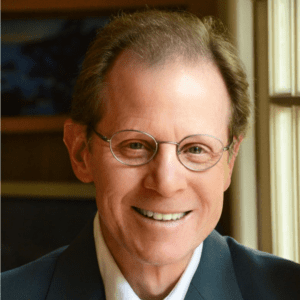Therapy is sometimes referred to as a science. And with the growing popularity of neuroscience in therapy circles, it’s easy to see why—learning about how the brain functions and using that knowledge to heal lends credibility to a field where day-to-day client progress is sometimes tough to measure.
But according to acclaimed psychiatrist Dan Siegel, a professor at UCLA’s School of Medicine, director of the Mindsight Institute, and author of The Developing Mind, a distinction needs to be made between the work of brain scientists and psychotherapists. The difference, he says, is that while therapists can be knowledgeable about the workings of the brain, their work deals primarily with the mind.
“Almost every mental health problem—anxiety, depression, eating disorders, personality disorders, thinking disorders—are issues of self-regulation,” says Siegel. “Ultimately the goal of therapy is to optimize the coordinated flow of energy and information.”
So what does this mean for therapy practice? In this video clip, Siegel explains his concept of the mind, as well as how to assess whether your client’s mind is healthy or in need of what he refers to as regulation.
As Siegel explains, knowing how the mind functions is key to helping your clients tap into a fuller sense of themselves and how they relate to others. What’s more, Siegel says, how therapy unfolds between your client and yourself can tell you about your own relational mind, and reveal hidden elements in your client’s mood, hopes, dreams, longings, and intentions.
“The past 40 years have given us a view of the mind that encompasses an emergent, self-organizing, embodied, and relational process that regulates the flow of energy and information,” Siegel says. “Now, more than ever, we as mental health practitioners need to be aware of the crucial importance of integration in human functioning and find ways to harness the power of psychotherapy to create a kinder, more compassionate, and integrated world.”
Rich Simon
Richard Simon, PhD, founded Psychotherapy Networker and served as the editor for more than 40 years. He received every major magazine industry honor, including the National Magazine Award. Rich passed away November 2020, and we honor his memory and contributions to the field every day.
Dan Siegel
Dan Siegel, MD, is the founder and director of education of the Mindsight Institute and founding codirector of the Mindful Awareness Research Center at UCLA, where he was also coprincipal Investigator of the Center for Culture, Brain and Development and clinical professor of psychiatry at the School of Medicine. An award-winning educator, he’s the author of five New York Times bestsellers and over 15 other books, which have been translated into over 40 languages. As the founding editor of the Norton Professional Series on Interpersonal Neurobiology (IPNB), he’s overseen the publication of over 100 books in the transdisciplinary IPNB framework, which focuses on the mind and mental health. A graduate of Harvard Medical School, Dan completed his postgraduate training at UCLA specializing in pediatrics, and adult, adolescent, and child psychiatry. He was trained in attachment research and narrative analysis through a National Institute of Mental Health research training fellowship focusing on how relationships shape our autobiographical ways of making sense of our lives and influence our development across the lifespan.













